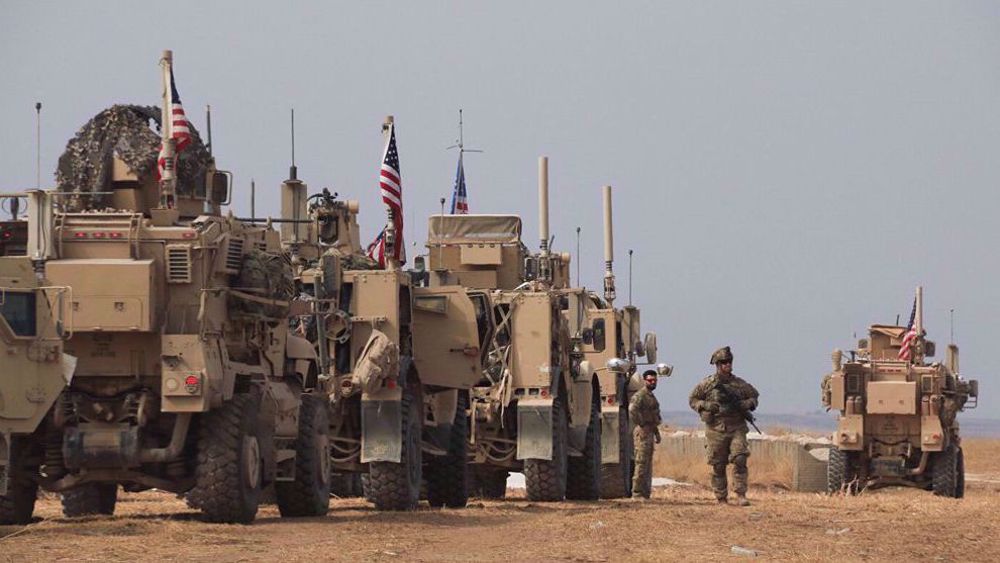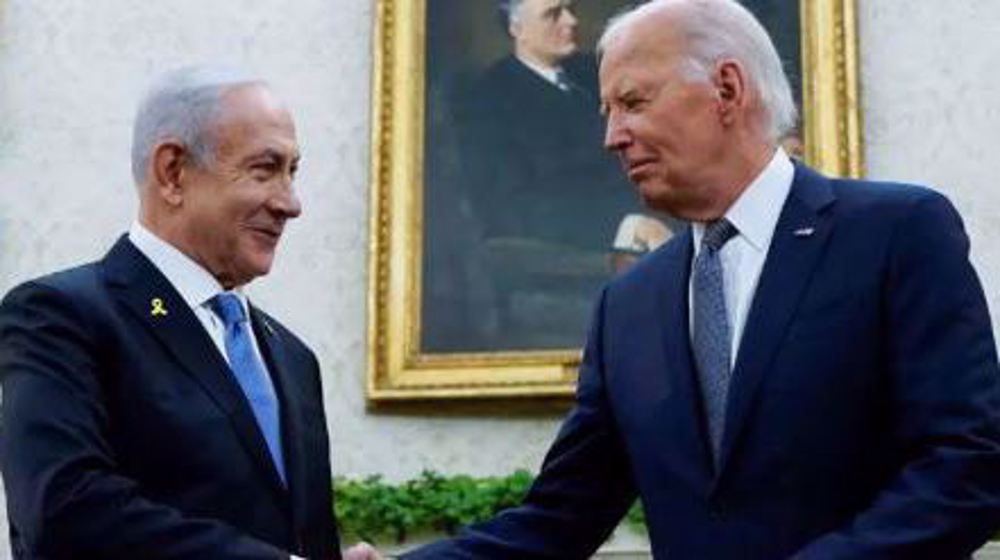US test-fires new ballistic missile from California
The United States has test-fired its second intercontinental ballistic missile in a week in a show of military prowess against rivals, reports say.
The blastoff overnight on Thursday of unarmed Minuteman III from a silo at Vandenberg Air Force Base in California was meant to demonstrate the ability of American nuclear arms, according to Reuters.
The strategic missile headed toward a target area near Kwajalein Atoll in the Marshall Islands of the South Pacific.
Deputy Defense Secretary Robert Work said the tests, conducted at least 15 times since January 2011, send a message to strategic competitors like Russia, China and North Korea that the United States has an effective nuclear arsenal.
"That’s exactly why we do this," Work told reporters.
"We and the Russians and the Chinese routinely do test shots to prove that the operational missiles that we have are reliable. And that is a signal ... that we are prepared to use nuclear weapons in defense of our country if necessary," he added.
Demonstrating the reliability of the nuclear force has taken on additional importance recently because the aging US arsenal is near the end of its useful life and a spate of scandals in the nuclear force two years ago raised readiness questions.
Now former US Army psychological warfare officer Scott Bennett says at the surface level the missile launch is aimed at, among others, designing pressure on China over the South China Sea dispute.
On a deeper level, Bennett says, during such a test there comes “a perfect opportunity to camouflage other operations…while all eyes and ears, and the radars are clearly locked on the missile testing facility.”
The US Defense Department has poured millions of dollars into improving conditions for troops responsible for staffing and maintaining the nuclear systems. The US administration also is putting more focus on upgrading the weapons.
President Barack Obama’s final defense budget unveiled this month calls for a $1.8 billion hike in nuclear arms spending to overhaul the country's aging nuclear bombers, missiles, submarines and other systems.
The president's $19 billion request would allow the Pentagon and Energy Department to move toward a multi-year overhaul of the atomic arms infrastructure that is expected to cost $320 billion over a decade and up to a trillion dollars over 30 years.
The nuclear spending boost is an ironic turn for a president who made reducing US dependence on atomic weapons a centerpiece of his agenda during his first years in office.
Obama called for a world eventually free of nuclear arms in a speech in Prague and later reached a new strategic weapons treaty with Russia. He received the Nobel Peace Prize in part based on his stance on reducing atomic arms.
Critics say the Pentagon's plans are unaffordable and unnecessary because it intends to build a force capable of deploying the 1,550 warheads permitted under the New Strategic Arms Reduction Treaty (START). But Obama has said the country could further reduce its deployed warheads by a third and still remain secure.
Iranians protest against Israel after Netanyahu ICC warrant
Germany undecided on complying with ICC arrest warrants for Israeli war criminals
VIDEO | Former FBI agent criticizes US Congress for 'outright corruption'
IRGC chief urges Muslim countries to cut aid routes to Israel
'New chapter in cooperation': Iran, Venezuela sign new MoUs
Jordan sentences former lawmaker for supporting Palestinian resistance
Basij volunteer forces hold massive drills in southwestern Iran
Israeli war criminals 'not welcome', US city says after ICC ruling










 This makes it easy to access the Press TV website
This makes it easy to access the Press TV website